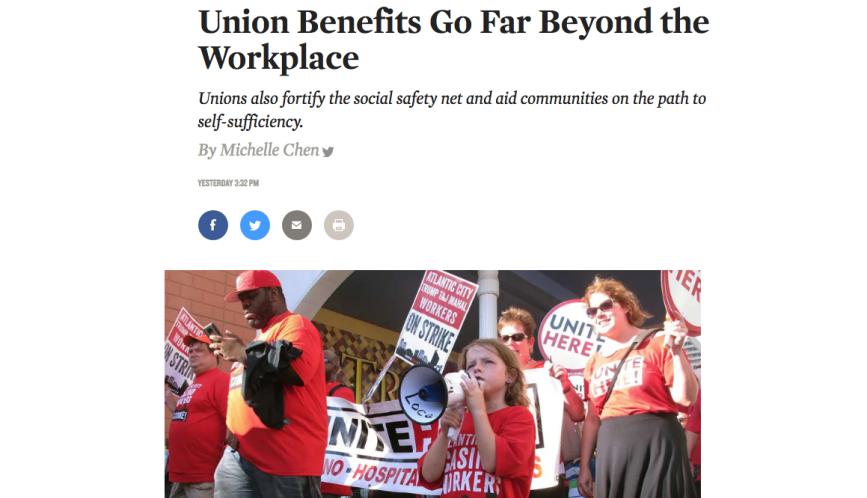The Nation featured a recent HCEO Research Spotlight, on a paper by MIP network member Aaron Sojourner and his co-author José Pacas. The paper looks at how union membership impacts families’ public benefit use or the amount of taxes they pay.
Sojourner, an Associate Professor at the University of Minnesota Carlson School of Management Department of Work & Organizations, found that union membership is associated with workers earning higher private income, paying more in taxes, and receiving less public benefits.
“Decreased unionization over recent decades has shifted resources away from workers, especially workers with lower earning power,” the paper notes. “This seems to have decreased their tax payments and increased their reliance on public benefits. Put another way, as unionization erodes, working families’ ability to stay clear of the public safety net erodes.”
Sojourner told the Nation that the economy is better off when workers can exercise power through unions. “Promoting collective bargaining is a way to encourage labor and management to negotiate their way to employment relationships that work well in the context of their company, market, industry, community and lives," he said.
"Public benefits will always be necessary for some workers, of course, and our social-welfare system needs to be strengthened," the Nation writes. "But union power lifts up workers’ wages while also strengthening public finances, which helps maintain social-welfare budgets and public services that support the entire working class."
You can read "The Relationship between Union Membership and Net Fiscal Impact" here, and the Nation article here.



